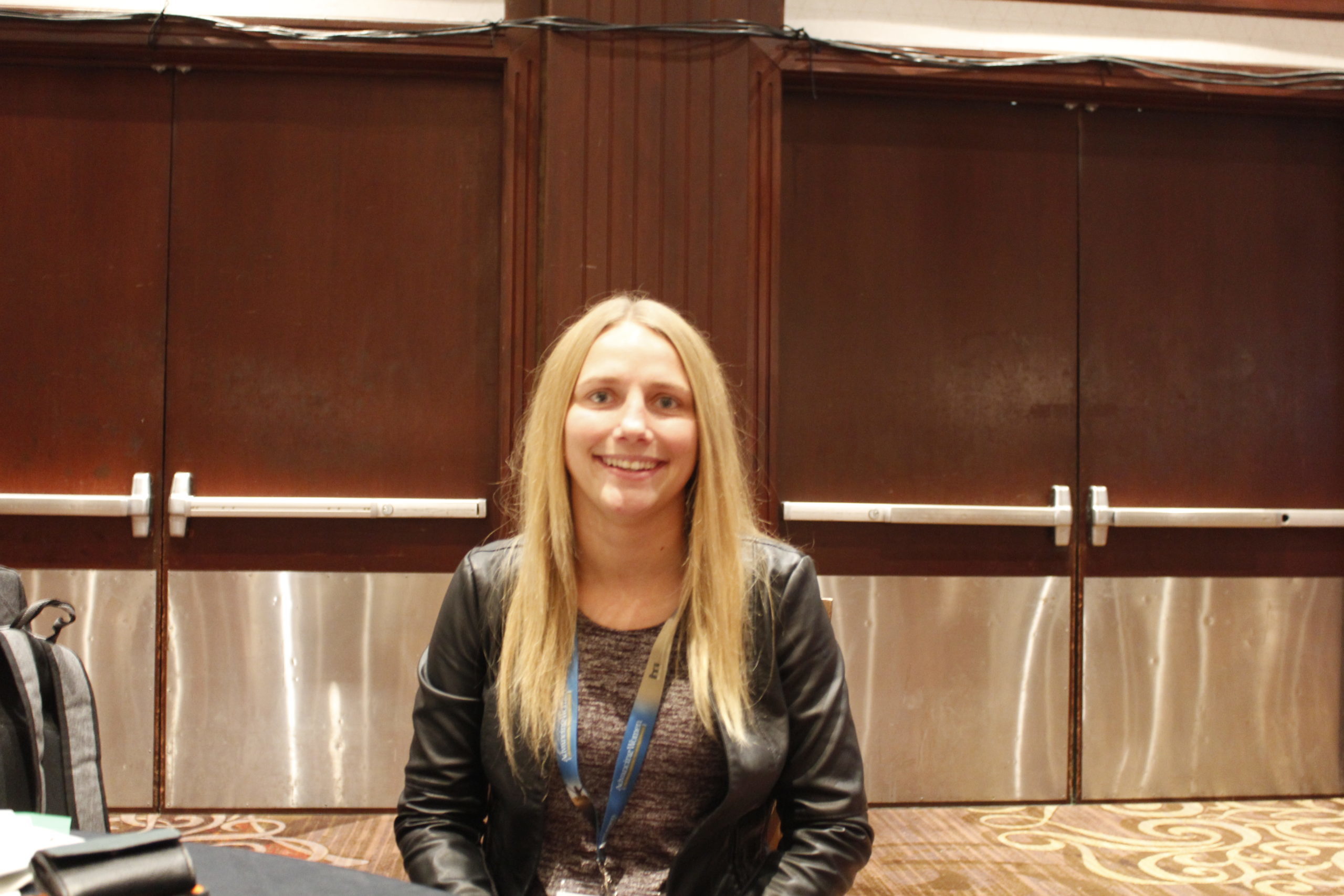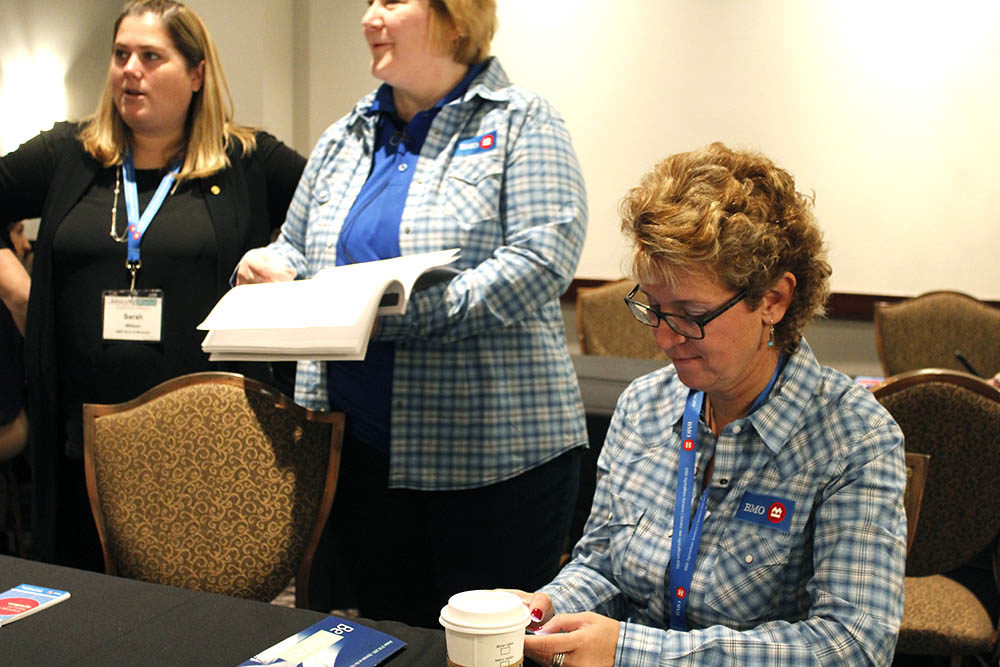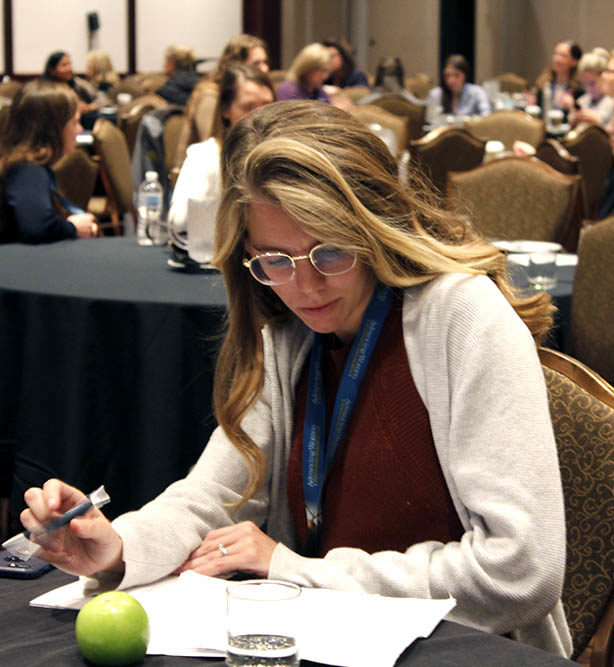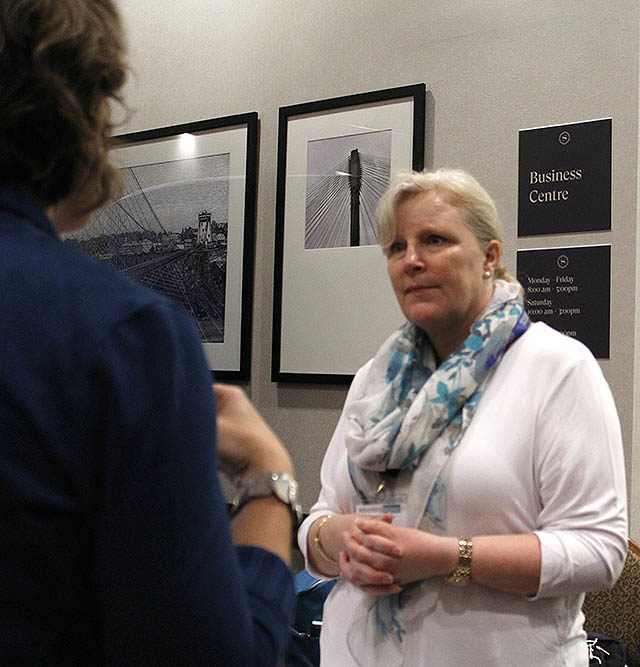NOT EVERYONE WANTS to succeed as a women farmer. While both Shearman and Eek lost, gained and evolved, they remained true to their farming lifestyle. Kristen Timmerman, a young university student, has more ambitious plans for the industry in the future. During a lunch break at the Advancing Women in Agriculture Conference in Niagara Falls, she talks about the future of women farmers and the evolving opportunities women have in today’s society. “I love the empowerment part of [the conference] and it really kind of drives me towards some of my ideas because I am also working on an agriculture app currently. So attending this conference is helping motivate me to carry on with the business line and carry on to get the financing for it,” she says. The app came from a school project Timmerman took as part of an entrepreneurship course. It received great reviews, and she was offered to develop the idea further. She then flew to Toronto from Treherne, Manitoba, where her family owns independent retail where they do crop inputs, custom applications, farm a few acres, and have an edible bean receiving station. She herself currently resides at her grandparents’ ranch outside of the city.
Timmerman’s grandfather bought the ranch off his friend in 2011 as a hobby farm for himself. “It was always his dream to build a horse barn,” she says. He began several enterprises, one of which is a family-owned agriculture company Circle T Agra, she says. Her uncle took over the concrete side and developed Timmerman Enterprises. She is studying agronomy at the University of Manitoba and intends to graduate with a bachelor’s degree in December. Her summer jobs involved working both as a family operation and in sales while looking to get into market development. “So my future plan right now is gaining experience outside of the family operation. I do plan to go back and run the operation with my brother,” she says.

Timmerman says that there is not a lot of stigma towards women in agriculture, especially in her own family business. “I was taught from a very young age to run heavy-duty equipment. That was just how I was raised,” she says. However, in her experience in sales, she says there is sometimes a bias towards women in agriculture. She says there was an instance where growers in the past said “‘Oh we know how it works.’”
“We always have a young good-looking student show up on our doorstep so that we can’t yell at them,” she recalls from one of her conversations. It makes her feel like she is unqualified to be there on the farm and speak with them, she says. “I think it’s more the idea that they still have trouble listening once in a while to what you have to say and what you have to offer because, they don’t understand how much background a lot of women now have,” Timmerman says. This, however, changed a lot. Timmerman notices that more growers are open to listening to women being on the farm and speaking to them about products.
Sheri Griffiths, regional president for business banking at BMO says that one of the roles she has within the bank is as an executive sponsor for BMO for women. This program came into effect 10 years ago to help women with financing their own businesses. “We do a lot of work to understand how women entrepreneurs work a little differently and make sure we have things that can help support them,” she says. She says they know that 60% of businesses are started by women now which is higher than in the past. “There is a myth that women are afraid of risks and it’s actually not true,” Griffiths says.
“I think it’s very important to be driven in the industry. My graduating class was the first class to be a 50/50 split at the University of Manitoba for my agriculture diploma,” says Timmerman. “It is definitely leading towards being more women in agriculture,” she says. Although Timmerman is a farm girl at heart, she wants to take her opportunities further to be a successful businesswoman. It is important for her to attend an event like Advancing Women in Agriculture Conference as it “helps drive girls to reach their goals.”


